By Nick DePascal
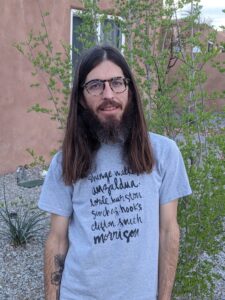 This year, my 11th grade English classes are reading The Grapes of Wrath. I teach in Albuquerque and I wanted to find engaging ways to make John Steinbeck’s beautiful and angry novel come alive for my students and connect to issues of farming, climate change, and unionizing that we are still experiencing today.
This year, my 11th grade English classes are reading The Grapes of Wrath. I teach in Albuquerque and I wanted to find engaging ways to make John Steinbeck’s beautiful and angry novel come alive for my students and connect to issues of farming, climate change, and unionizing that we are still experiencing today.
Basically, I wanted this unit to answer the question, “Why are we reading this?” as this is a question I try to ask myself every time I assign a text.
Luckily, the Zinn Education Project had my back!
I used Food, Farming, and Justice: A Role Play on La Vía Campesina to show the struggles and triumphs farmers across the globe are facing today, as well as the Stories from the Climate Crisis Mixer, to give students more breadth and depth on or current climate crisis around the globe. Both lessons connected perfectly with The Grapes of Wrath.
With the “La Via Campesina” role play, students ended the lesson by making some very creative protest signs that represented the needs and struggles of their respective farming collectives. Class discussions afterward elicited many connections between corporate greed and independent farmers, poverty, starvation, and destruction of the environment that are prominent in the novel as well. The role play offered excellent resources and background context for my students, and was a very fun and thought provoking lesson that gave my students more of an awareness of the world and contemporary connection to The Grapes of Wrath.
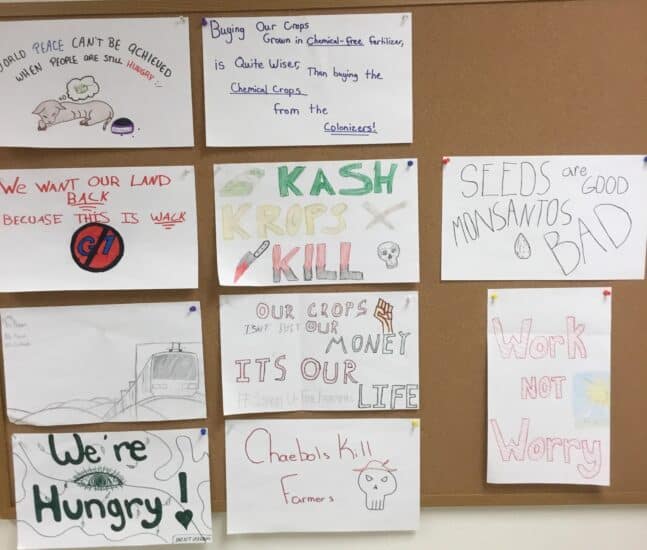
The “Stories from the Climate Crisis Mixer” was another wonderful success. After spending time getting to know their role and writing first person narratives, the class came alive during the mixer portion, with students respectfully embracing their roles and pouring their hearts out to one another.
The Zinn Education Project offers a great introductory article on doing role plays and how to make sure they remain respectful and focused, so I never felt out of my element as we dove into these. As suggested by the creator of the mixer, I chose a role for myself, wrote my narrative, and really embraced my character as I participated in moving around the room and talking with my students. I think this, too, gave them more buy-in for the lesson, and I would recommend it for other teachers!
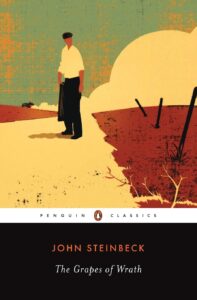 After we finished, I used the questions provided in the lesson plan and added one about The Grapes of Wrath. By and large, the responses and silent discussion students had and the closing discussion we had after writing time was enriching and deep. They learned about people and events they didn’t know about, as well as how the past (as represented by the novel) is not over and done with, but is still alive and kicking in our present day.
After we finished, I used the questions provided in the lesson plan and added one about The Grapes of Wrath. By and large, the responses and silent discussion students had and the closing discussion we had after writing time was enriching and deep. They learned about people and events they didn’t know about, as well as how the past (as represented by the novel) is not over and done with, but is still alive and kicking in our present day.
Here are some quote from student reflections on the mixer:
I was surprised at how many people were banking on climate change to profit. I always thought that this would be bad for everyone but apparently not. . . Some themes I saw were movement, lots of people moving to and from, and some people who profit off of that movement.
I found Elizabeth’s story to be a real “aha” moment. She was living peacefully when all of a sudden a hurricane hit and because of that hurricane, she became homeless, which was a really big life change for her. Although no one made me angry, I found that Steve had a really sketchy idea on what should be done. His idea was that we should build more nuclear power plants because they don’t produce waste, but it kind of sounds like he’s taking advantage of this whole thing and just wants to make money. A theme that kept coming up in conversations was that we were all “in the same boat.” I say this because although we had different views on how this should be solved, we all still had the same goal for the most part. I saw a connection to The Grapes of Wrath when I noticed that a lot of people were forced to flee their land because of either it being uninhabitable or going to be uninhabitable in the next few years, which means that they have to move just like the Joad family.
I saw most of the time, there was a theme of understanding, with everyone hearing each other out and relating to each other’s situations, with many of us losing our homes and/or family to climate change.
Overall, these mixers were a success in that they gave us new viewpoints with which to consider our current world and the world of the novel we are reading. I think that most of the wonderful lessons offered by the Zinn Education Project would work in an English classroom as well as any Social Studies classroom, given the right text, and I am already planning to use another mixer on subversives as we get further in the novel!

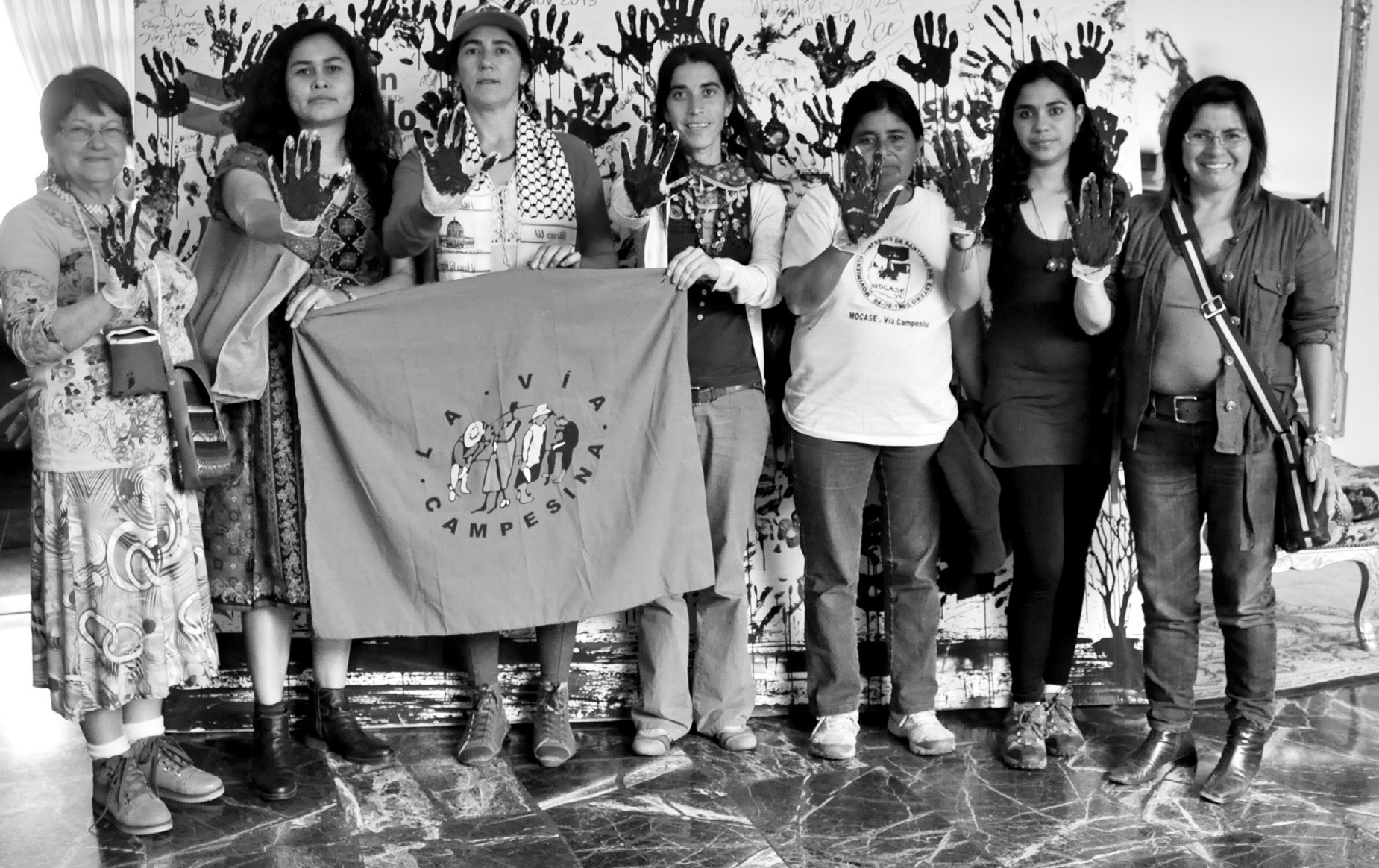
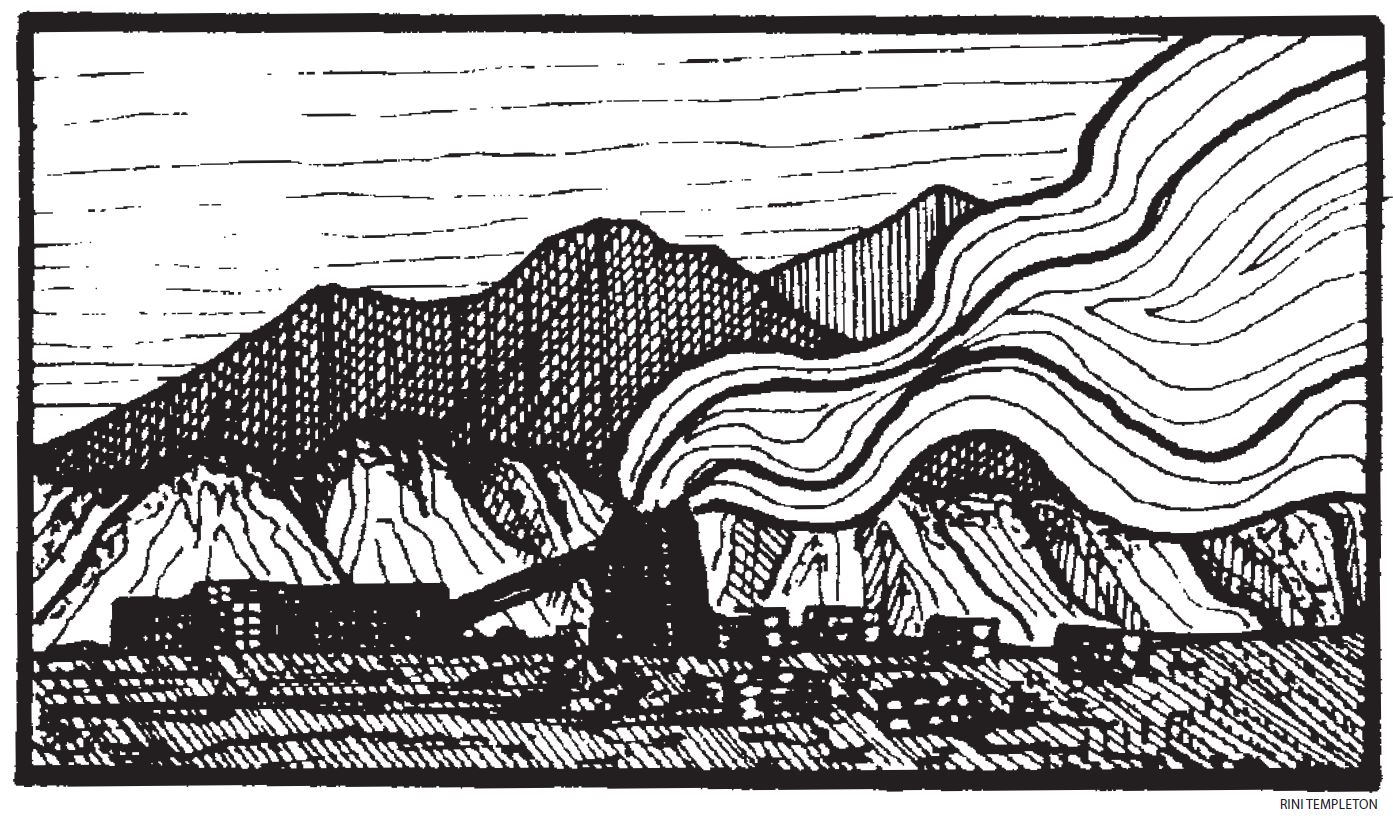
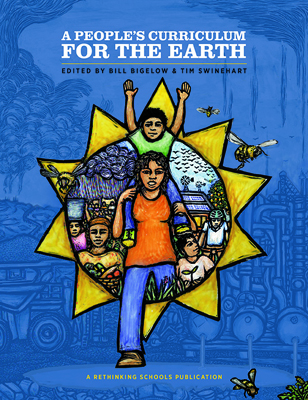





Twitter
Google plus
LinkedIn